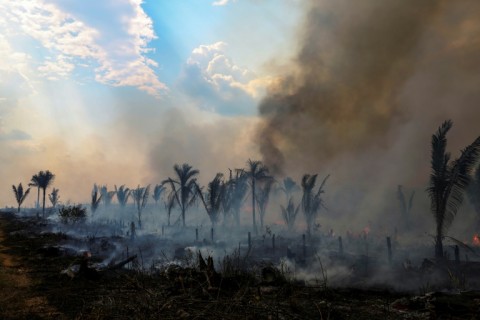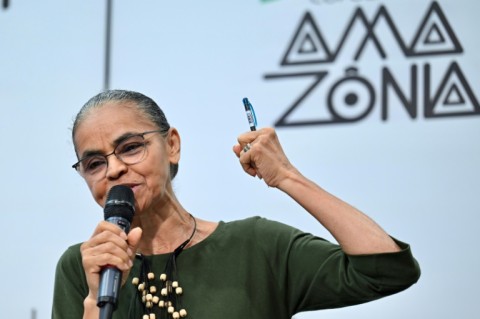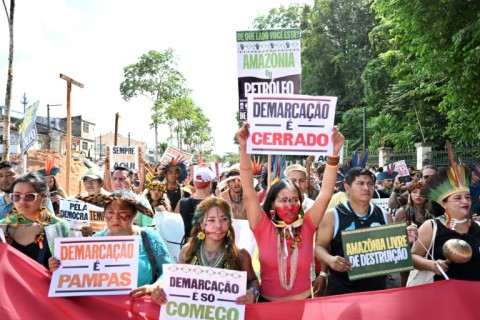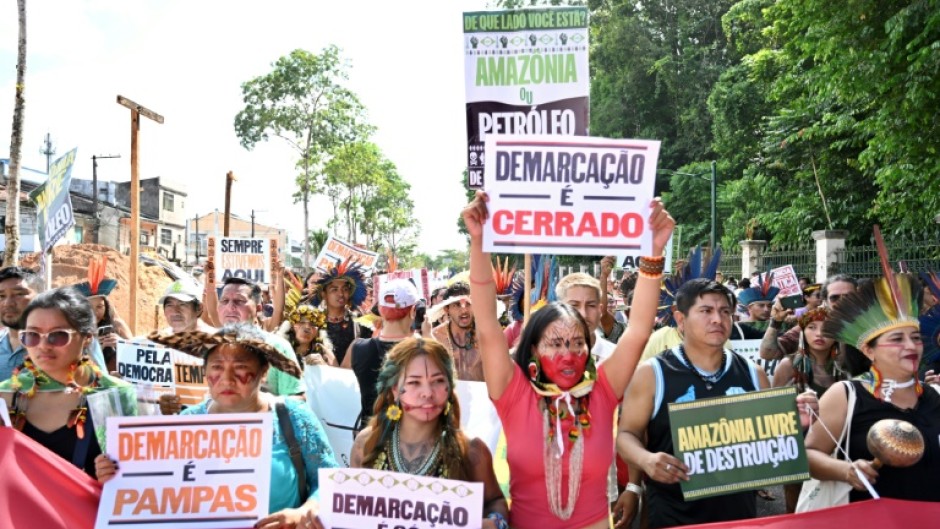
BELEM - Brazilian President Luiz Inacio Lula da Silva and fellow South American leaders face pressure to set out bold solutions to save the damaged Amazon as they open a summit Tuesday on the world's biggest rainforest.
Brazilian officials have vowed to seek an ambitious roadmap to stop deforestation at the two-day meeting of the Amazon Cooperation Treaty Organization in Belem, at the mouth of the Amazon river.
It is the first summit in 14 years for the eight-nation group, set up in 1995 by the South American countries that share the Amazon basin: Bolivia, Brazil, Colombia, Ecuador, Guyana, Peru, Suriname and Venezuela.
Home to an estimated 10 percent of Earth's biodiversity, 50 million people and hundreds of billions of trees, the vast Amazon is a vital carbon sink, reducing global warming.
But scientists warn deforestation is pushing it dangerously close to a "tipping point," beyond which trees would die off and release carbon rather than absorb it, with catastrophic consequences for the climate.
The region's countries are determined "not to let the Amazon reach a point of no return," Brazilian Environment Minister Marina Silva told a ministerial meeting ahead of the summit.
Brazilian Foreign Minister Mauro Vieira said the summit would produce a joint declaration setting out "instructions" for the eight countries to implement "new targets and new tasks" to protect the rainforest from deforestation.
The working draft "was negotiated in record time -- just over a month," he said.
- Brazil, Colombia: competing priorities -

Deforestation is driven mainly by cattle ranching, though it is fueled by a murky mix of corruption, land-grabbing and organized crime whose tentacles extend to the illegal traffic in drugs, arms, timber and gold.
In Brazil, the world's top exporter of beef and soy and home to 60 percent of the Amazon, the destruction has already wiped out around one-fifth of the rainforest.
Environmental groups are pressuring all eight countries to adopt Brazil's pledge to eradicate illegal deforestation by 2030, though host country officials have indicated those negotiations may need more time.
"Each country has its dynamics. We don't work by imposing one point of view. It's a consensual, progressive process," Silva said Monday.
Colombian President Gustavo Petro is meanwhile pushing other countries to adhere to his pledge to ban all new oil exploration -- a touchy subject for oil-rich Venezuela and also Brazil, whose state-run oil company, Petrobras, is controversially seeking to explore new offshore blocs at the mouth of the Amazon river itself.
Silva hailed both leaders' initiatives.
"We have two presidents arriving with strong commitments: the Colombian president with zero petroleum, and Lula with zero deforestation," she said.
- Lula test -
The summit is a key test for veteran leftist Lula, who previously served as president from 2003 to 2010 and returned to office in January vowing "Brazil is back" in the fight against climate change after four years of surging destruction in the Amazon under his far-right predecessor, Jair Bolsonaro.
Brazil said its goals for the summit included the creation of an international police task force for the region and a scientific research group modeled on the Intergovernmental Panel on Climate Change (IPCC), the advisory board to the UN climate talks.
The summit is also something of a dress rehearsal for the COP30 UN climate talks, which Belem will also host in 2025.
The summit "should deliver concrete results if the region is serious about becoming a leader in climate action," said US-based activist group Avaaz.

Indigenous groups -- whose protected reservations are crucial buffers against the destruction of the world's forests, according to experts -- urged South American leaders to take bold actions.
"Our struggle isn't just for Indigenous peoples, it's for the entire world, so future generations can survive on this planet," Nemo Guiquita, head of Ecuadoran Indigenous confederation CONFENIAE, told AFP.
mel/jhb/jh
By Eugenia Logiuratto

